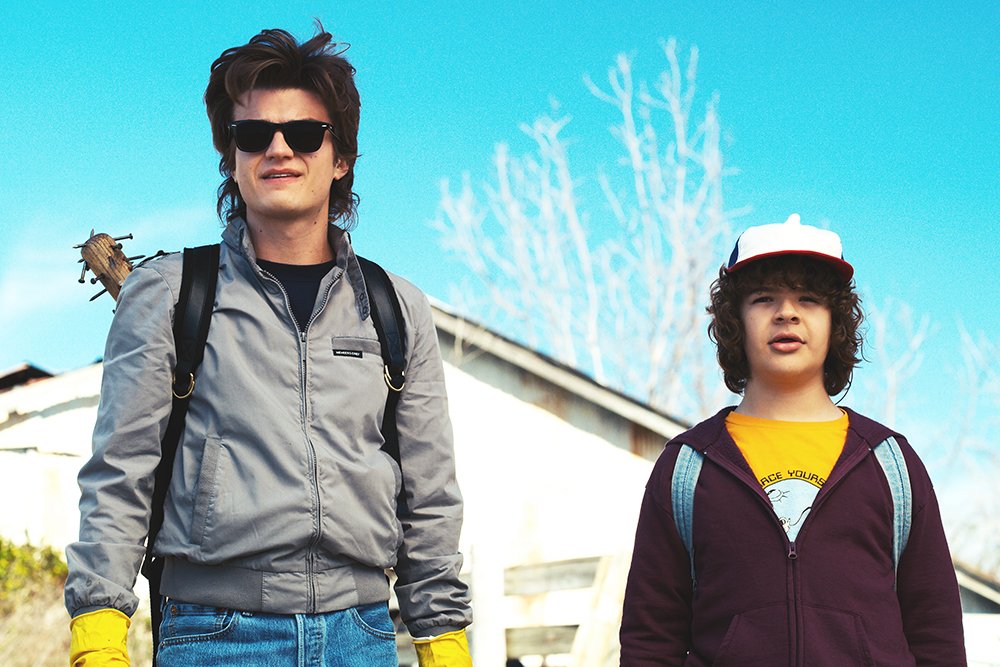Socially Unacceptable
Humanity is constantly evolving, which causes both conscious and subconscious unrest among us. As a species, we aren't too comfortable with change, and we seek control in the midst of perceived chaos. We often turn to entertainment to help us unplug from, and deal with, our problems in a safe way.
We want to watch and read stories that we can identify with, and that resonate with our humanity. Stories effect us on many levels, but the deepest impact is on our emotions. Good movies make us feel things, and sometimes, they scare us.
Fear
Fear is perhaps is deepest and most primal of our emotions. In spite of all our discoveries and advancements, we're still afraid of the dark and what might be hiding under the bed. Because of this, horror has always been an outlet for, and a reflection of, our society.
The giant bug movies of the 50s & 60s were the answer to the atomic age and the threat of global annihilation. The 70s saw an increase of on-screen violence after footage from Vietnam was regularly viewed in American households. Films like Hostel in the 2000s explored the xenophobia that the nation experienced after 9/11. And perhaps the best example of today's paranoia can be found in the cautionary tales of technology in Black Mirror.
These tales deal with societal fear in a direct way by confronting issues and finding resolution in the end.
These tales deal with societal fear in a direct way by confronting issues and finding resolution in the end. They are certainly not always happy, but they (mostly) play by the rules and give us a conclusion we can understand.
Nostalgia
American culture is currently in a state of complete chaos, and when our world is in turmoil, it's natural to turn to the things that comfort us. Nostalgia is a powerful force, and we've definitely seen it trending in entertainment. Unless you've been living under a rock, you know that two of the biggest genre hits lately have been IT and Stranger Things. Both of these stories are firmly set in the 80's, featuring kids as the main characters. They remind us of a simpler time, and they believe in the purity of the idea that love and friendship can always overcome evil.
They remind us of a simpler time, and they believe in the purity of the idea that love and friendship can always overcome evil.
In a time when there is so much disagreement and strife, it's comforting to believe in a world where we can come together for a common cause and stand against the things that would destroy us. Horror has always best presented that particular story, so it's no wonder that it's so strong in the current social climate.
Monsters
Perhaps the very first monster in cinema history is Frankenstein. He may look scary on the outside, but if you know anything about Frankenstein, then you know he's really just misunderstood. He seeks to understand why he was created, and where he belongs. At the end of the day, isn't this what we are all looking for?
Humans are capable of both good and evil, and no one operates in either one of these all the time. We are complicated, we are diverse, and we are flawed. At times, our insecurities have gotten the best of us and we've all felt like Frankenstein - outside, outcast, the "other".
We are able to identify with the monster, especially in times when so many marginalized groups have presented a united front, standing up for the right to be included. Much like our beloved Frankenstein, people of minority race, gender and sexual orientation have often been misunderstood and demonized. And so, Frankenstein's story becomes surprisingly relevant in a culture that is seeking to understand, and accept, those who are trying to find their place.
Beware; for I am fearless, and therefore powerful.
Mary Shelly
Revenge of the Nerds
Horror has always existed on the fringe of entertainment, but when you take a closer look, you'll see that it holds a surprising amount of truth about humanity, and seems to make the most relevant statements about our culture at any given time. Horror has always excelled when society is unstable, and I think we're living in quite an interesting time for scary stories.
No one knows monsters (or genre) better than Guillermo del toro, so I'll leave you with his words from this year's Golden Globes.


